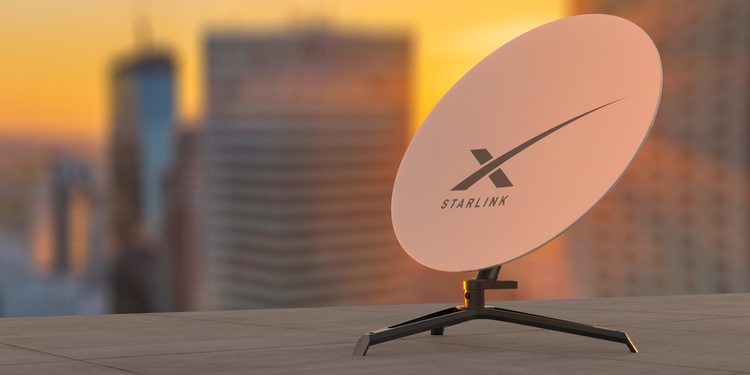The National Communications Authority (NCA) of Ghana has recently approved SpaceX’s Starlink to operate within the country, thereby allowing the company to offer satellite broadband services to Ghanaian consumers.
This decision marks a significant shift from the previous stance of the NCA towards Starlink and highlights the evolving landscape of telecommunications regulation in Ghana.
The approval for Starlink’s operations in Ghana comes after regulatory scrutiny and evolution within the telecommunications sector.
Read also: Starlink Router’s price falls due to Nigerian Naira rise
Four months before this approval, the NCA declared any activities related to Starlink illegal under the Electronic Communications Act of 2008. This initial stance positioned the use of Starlink equipment or services in Ghana as a violation of established legal frameworks.
The recent approval is attributed to the policy acceptance of Ghana’s Satellite Licensing Framework by the Ministry of Communications and Digitalisation. This policy shift paved the way for the NCA to consider and approve Starlink’s application for operations in the country. As administrative processes for issuing the necessary licenses are currently underway, the commencement of Starlink’s services in Ghana is imminent.
Ghana overturning its decision on Starlink
Ghana’s decision to approve Starlink’s operations positions it as the eighth African country to embrace satellite broadband technology. Preceding Ghana, countries such as Nigeria, Mozambique, Eswatini, Zambia, Malawi, Kenya, and Rwanda had already endorsed the use of Starlink within their respective territories. However, contrasting stances are evident in countries like Ivory Coast, Burkina Faso, the Democratic Republic of the Congo, Zimbabwe, South Africa, Senegal, Botswana, and Mali, where Starlink is deemed illegal.
Notably, Zimbabwe has seen inventive methods employed by its citizens to access Starlink despite the country’s ban on the technology. Reports indicate that individuals are disguising Starlink kits as everyday objects to evade legal repercussions. In Botswana, authorities have taken a firm stance against Starlink, citing legal consequences for those involved in its importation, use, or sale. The rejection of Starlink’s application in Botswana was due to regulatory non-compliance.
While the approval of Starlink in Ghana opens new avenues for broadband access, concerns and opportunities accompany its introduction. Ghana’s Internet penetration rate, approximately 70% in January 2024, reflects a growing digital connectivity landscape. With nearly 24.06 million Internet users in the country, the demand for reliable and high-speed connectivity continues to rise.
Read also: Starlink categorises Zimbabwe as unauthorised territory
Fear of potential market disruption in the Ghana telecom industry
However, concerns like those expressed in other African nations are also present in Ghana. Authorities in Cameroon, for instance, are wary of Starlink’s impact on local telecommunications providers like Camtel. They fear potential market disruption, fraudulent activities, exploitation of Starlink terminals, and risks related to personal data security.
The approval of SpaceX’s Starlink in Ghana represents a significant development in the country’s telecommunications sector, aligning with broader continental trends towards embracing satellite broadband technologies. While opportunities for enhanced connectivity and technological advancement are evident, regulatory challenges and concerns over market dynamics and data security necessitate a nuanced approach towards integration and oversight. Ghana’s journey with Starlink reflects a broader narrative of Africa navigating the complexities of digital transformation amidst evolving regulatory landscapes and technological innovations.
